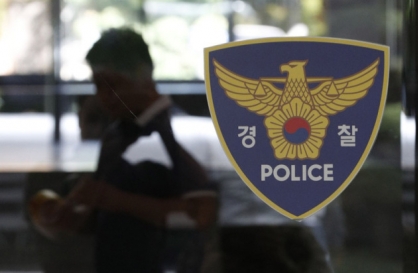
One of the inscrutable things in South Korea is the recent tendency of political parties to change their names continually. In fact, this phenomenon of political parties changing their names happens so frequently in Korea that people are now confused which is which. Take the conservative opposition party, for example. Just before the April election this year, it changed its name from the Liberty Korea Party to the United Future Party simply because voters did not like the stalemate connotations of being called the opposition party. In August, the United Future Party changed its name again to the People Power Party because despite the new name, the Party had lost the election. Ironically, the most recent name, the People Power Party, sounds like a radical progressive party, not a conservative party, thereby making it lose its identity inadvertently during the name changing process.
In fact, the opposition party has frequently changed its name, from the Grand National Party to the Saenuri Party and then to the Liberty Korea Party, the United Future Party, and most recently the People Power Party. The ruling party is not an exception, either and had a variety of different names in the past. Consequently, many Koreans are confused and find all these name changes rather meaningless. The important thing is the change of the substance, not simply the name. Yet, our politicians only keep changing the name of their party without changing its substance.
Among other perplexing phenomena are the mottos of our governments, which often turn out to be a hollow mockery of themselves. During the military dictatorship of Chun Doo-hwan, for example, the government’s motto was “Building a Society of Justice.” However, how can a military dictator who had seized power through a coup possibly build a just society? Thus, the motto became an object of derision. During the Noh Moo-hyun administration, the motto was “Everybody’s Participating Government.” Regrettably, however, those who did not support President Roh could not participate in the government. Thus, people muttered, “It is Our Faction Only Participating Government.”
At that time, the Ruling Party was the Uri Party, which means, “Open to Everybody Party” in Korean. However, people derided the name by calling it, “Closed to Everybody Party” or “Open Only to Us Party.” Currently, the Korean name of the Ruling Party is “Deobureo Minjudang,” which means “Together Democratic Party.” However, since the Party excludes those who are not in its faction, people call it sarcastically, “Wurikiri Deobureo Minjudang,” which means “Our Faction Only Together Democratic Party.”
It is also incomprehensible that some cabinet members are so arrogant and impudent at the National Assembly auditing in South Korea these days. Yet, if we look a little closer, the reason is obvious. Those conceited cabinet members are former National Assemblymen. That means, the lawmakers in the auditing room are the cabinet members’ former colleagues. Why, then, would they be modest or polite? Therefore, it is not a good idea to appoint a National Assemblyman to a government cabinet post. Others can also be insolent if the majority of National Assembly auditors are from the Ruling Party who will automatically take their side.
It is equally puzzling to see the recent criticism of Chinese netizens on the Korean vocal group, BTS, when they expressed gratitude at the Van Fleet Award ceremony to the US army for its help during the Korean War. The incident stemmed from a misunderstanding of Chinese young people about the Chinese intervention in the Korean War. During the Korea War, China fought the US to help North Korea, not South Korea. However, many Chinese people misunderstand that China fought for Korea, both the North and the South.
It is bewildering that a Korean writer reportedly said of late that pro-Japan collaborators were mostly those who had studied in Japan. It immediately ignited controversy because according to his logic, anyone who has studied in China or America is likely to be a pro-China or pro-America collaborator, which is not true. Regrettably, our writers are not free from the “nutshell logic” of ultra-nationalism, yet. The incident reminds us of the great writer, James Joyce, who boldly denounced the ultra-nationalism of his homeland and lived in exile in a foreign country.
Finally, it is embarrassing to see our high-ranking diplomats not hesitate to utter undiplomatic remarks on foreign relations publicly. In diplomacy, you do not bluntly say, “No!” because it may inflame the other party. Yet, our diplomats do not seem to be discreet enough and consequently provoke other nations.
Indeed, we have so many inscrutable things happening in our country these days. We should be rational and reasonable from now on.
Kim Seong-kon
Kim Seong-kon is a professor emeritus of English at Seoul National University and a visiting scholar at Dartmouth College. -- Ed.






![[KH Explains] Can tech firms' AI alliances take on Nvidia?](http://res.heraldm.com/phpwas/restmb_idxmake.php?idx=644&simg=/content/image/2024/05/07/20240507050619_0.jpg&u=)


![[Grace Kao, Meera Choi] Has money displaced romance on dates?](http://res.heraldm.com/phpwas/restmb_idxmake.php?idx=644&simg=/content/image/2024/05/06/20240506050233_0.jpg&u=)







![[K-pop’s dilemma] Time, profit pressures work against originality](http://res.heraldm.com/phpwas/restmb_idxmake.php?idx=652&simg=/content/image/2024/05/08/20240508050705_0.jpg&u=20240508171126)
![[Today’s K-pop] NCT Dream to drop pre-release from 2nd Japan single](http://res.heraldm.com/phpwas/restmb_idxmake.php?idx=642&simg=/content/image/2024/05/08/20240508050725_0.jpg&u=)